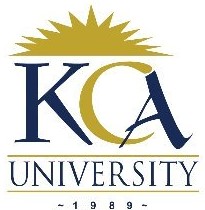
UNIVERSITY EXAMINATIONS: 2017/2018
EXAMINATION FOR THE DEGREE OF DOCTOR OF PHILOSOPHY
IN INFORMATION SYSTEMS
PIS 9305: ADVANCES IN INFORMATION AND COMMUNICATIONS
TECHNOLOGY FOR DEVELOPMENT
DATE: DECEMBER, 2017 TIME: 2 HOURS
INSTRUCTIONS: Answer Question One & ANY OTHER TWO questions.
QUESTION ONE (20 MARKS)
a. Expand and explain the abbreviation ICT4D. (3 Marks)
b. Explain the four research areas in the ICT4D 2.0 (8 Marks)
c. Explain the three ways in which development actions can address needs of the poor. How
can ICT4D be incorporated in each of the three ways. (9 Marks)
QUESTION TWO (20 MARKS)
a. Using a diagram, explain the Qureshi (2005) Model of the Information Technology for
Development. (8 Marks)
b. Discuss how social and economic development activities are able to benefit from ICT
implementations using the Qureshi (2005) Model of the Information Technology for
Development. (12 Marks)
QUESTION THREE (20 MARKS)
a. The debate of who actually benefits most from the ICT revolution has not been
conclusive. As part of this debate, explain the Late-comer Advantages of ICT adoption in
the African countries. (2 Marks)
b. Explain the three channels ICT’s can contribution to Economic Growth. (6 Marks)
c. Explain the three factors which makes investment in ICTs to generate limited returns in
developing countries. (6 Marks)
d. Discuss the three most common methodologies researchers employ to assess the
contribution of ICT to economic growth. (6 Marks)
QUESTION FOUR (20 MARKS)
a. With an aid of a diagram, discuss the four discourses on ICT and Development (ICTD)
studies as conceived by Avgerou (2008). (20 Marks)
QUESTION FIVE (20 MARKS)
a. Taking the view of ICTs as commodities and means to achieve development as freedom,
Zheng (2009) proposed five research questions to assess how a certain type of ICT can
contribute to Human Development. Using these five questions, discuss how
implementation of Mobile Money can contribute to Human Development.
(20 Marks)
